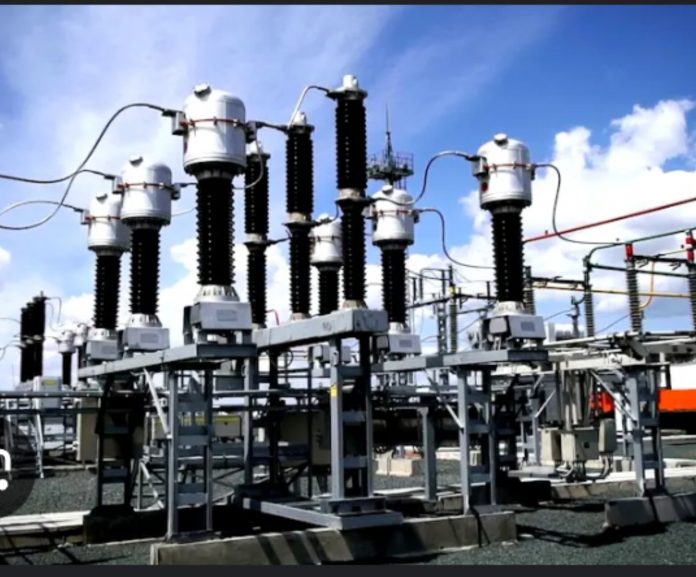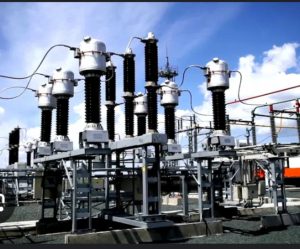National power grid
It’s sad that in better climes what normally goes for aberration becomes the norm in Nigeria. The level of dysfunction in the polity is befuddling, and most tragic is that nothing shocks the system any longer.
In a space of two days, the national power grid last week witnessed three collapses, throwing the entire populations into pitch darkness in the 21st century, and everything seems to be normal.
The political leadership seems totally inured from shame and responsibility, and when duty to responsible behaviour seems to be an option and not a priority there’s a problem. This is exactly where we are today in the country, as our leaders no longer care about their duty and responsibility.
It’s confounding and ethically untenable that in spite of the gargantuan investment in the power sector, the national grid has had to collapse about 105 times under administration of President Bola Tinubu and his predecessor, Muhammadu Buhari.
It’s on record that Nigeria secured about 10 loans worth $4.36bn from the World Bank over the past decade to address key challenges in its power sector.
Given that not all 10 World Bank loans have been released completely, the Federal Government and other multilateral agencies have supported the country’s power sector financially over the years without any tangible results, and it would seem nobody has been prosecuted for this default.
They have provided billions of naira to revamp the industry but despite these funds, the sector is still struggling, witnessing incessant grid collapses, which has repeatedly plunge the country into widespread blackouts.
NATIONAL WAVES would do well to remind the political actors right from the Buhari years up to the current leaders that one of the cornerstone of the All Progressives Congress’s campaign promises in 2015 and thereafter was to turn things around positively in the power sector.
However, it appears the challenges of the power sector overwhelmed the Buhari administration, which took over from former President Goodluck Jonathan of the Peoples Democratic Party (PDP) and is now overwhelming the Tinubu government.
Data obtained from different sources, including the Nigerian Electricity Regulatory Commission (NERC) have revealed that the grid collapsed approximately 93 times during the eight-year rule of Buhari, from June 2015 to May 2023, and more than five times in the Tinubu presidency.
The national power grid, according to NERC, is a vast network of electrical transmission lines that link power stations to end-use customers across the country and it is designed to function within specific stability boundaries, including voltage (330kV ± 5.0 per cent) and frequency (50Hz ± 0.5 per cent).
Any deviation from these stability ranges can result in decreased power quality and, in severe cases, cause widespread power outages ranging from a partial collapse of a section of the grid to a full system collapse.
When the electricity demand is higher than the supply, the grid frequency drops. Conversely, if supply surpasses demand, the frequency increases. In reaction to the grid operating at a frequency outside of the normal operation range (especially when the frequency is too low), safety settings on generation units may cause the units to shut down.
This often exacerbates the frequency imbalance on the grid thereby causing more generation units to shut down resulting in a full or partial system collapse.
The economic cost of grid collapse is enormous. It should be noted that anytime the grid collapses, the majority of electricity consumers are thrown into darkness, affecting businesses and social activities.
According to industry data, under Buhari, the grid collapsed three times in 2015, 28 times in 2016, 24 times in 2017, 13 times in 2018, and 11 times in 2019.
The grid frequency appeared to improve from 2020 to 2023 as the grid collapsed 14 times within this period until Buhari vacated office on May 29, 2023.
It would seem the current administration has inherited a tradition of grid collapse, as NATIONAL WAVES has observed that the Tinubu administration carried on with the grid collapse cases, with three of such incidents occurring between June and December 2023.
Nigerians endured more nationwide blackouts on September 14, 2023 when the grid collapsed due to a fire on a major transmission line.
On September 20, 2023, Nigeria witnessed another round of widespread blackouts across the country the preceding day as the national power grid collapsed again, making it the third grid collapse in about five days during that period.
Since January 2024 till date, the grid has collapsed about nine times. Last week, the grid collapsed three times with its attendant blackouts, sparking reactions from Nigerians. As of now, the Tinubu administration has recorded no fewer than 12 collapses in 16 months.
On Saturday, the national grid collapsed – third in the week – as power generation went off around 8:16am. This was after the grid tripped off last Monday. It went off again last Tuesday when it was being restored.
It’s in the public domain that Nigeria secured about 10 loans worth $4.36bn from the World Bank over the past decade to address the power sector challenges.
The loans, which are aimed at supporting infrastructural development, distribution reforms, and renewable energy initiatives, are at different stages of progress.
While some are still disbursing, others have been signed but are yet to begin disbursement. However, one loan approved in 2014 has been terminated.
Investigation has shown that four loans, amounting to $2bn, have been signed but are yet to disburse any funds.
These include the Sustainable Power and Irrigation Project, valued at $500m, which was signed in September 2024, and three components under the Nigeria Distributed Access through Renewable Energy Scale-up Project, totalling $750m, approved in December 2023.
Five loans are actively disbursing funds, though large portions of their allocations remain undrawn.
These include the Power Sector Recovery Performance-Based Operation, the North Core Regional Power Interconnector, the Nigeria Electrification Project, and the NG-Electricity Transmission Project.
Together, these projects represent $2.06bn, or 47.25 per cent of the total loan portfolio.
Out of the five loans currently under disbursement, Nigeria is already making repayments on three of them.
One example is the Nigeria Electrification Project, which has disbursed $269.67million from a total allocation of $350million.
Similarly, the North Core Regional Power Interconnector has released $15.74million from a $27.4million facility. The NG-Electricity Transmission Project, with two components worth $486million is also disbursing funds while repayments are ongoing.
These projects reflect the country’s efforts to balance loan repayments with the need for critical infrastructure investment.
One project has been terminated. The Nigeria Power Sector Guarantees Project, initially valued at $125million was cancelled on May 1, 2014, without any funds being disbursed.
The terminated project was aimed at improving electricity supply for consumers by supporting private sector-led investments in power generation and distribution.
It was designed to back key reforms in Nigeria’s power sector through a series of partial risk guarantees.
These guarantees were intended to support three key areas: greenfield Independent Power Producers’ projects, the privatisation of Generation Companies, and the turnaround of distribution companies.
However, this project was terminated, and nothing was disbursed by the World Bank. There was no available information on the reason for the termination.
It would seem that World Bank loans were usually tied to targets, and failure to meet such targets would either lead to a delay in disbursement or outright cancellation of the loan.
Despite the World Bank’s funding support over the years, delays in disbursement remain a significant concern, as $2.96billion of the total $4.36billon are still undisbursed.
The largest disbursement so far has been recorded under the Nigeria Electrification Project, which focuses on improving rural and off-grid energy access. So far, $269.67million has been released from the $350million earmarked for the project.
Notably, a substantial portion of the loans was secured under President Tinubu’s administration, highlighting the government’s renewed push to revitalise the country’s energy sector.
Since Tinubu assumed office in May 2023, the World Bank has approved new electricity loans over $1.901billion, representing 44 per cent of the total loan portfolio over the decade.
In December 2023, Tinubu’s government secured $750million for the Nigeria Distributed Access through Renewable Energy Scale-up Project, a move aligned with the administration’s focus on expanding renewable energy.
Also, the Sustainable Power and Irrigation Project, valued at $500million was signed in September 2024 to enhance power generation and agricultural irrigation.
While the loans reflect a strategic commitment to addressing Nigeria’s energy deficit through renewable energy and infrastructure development, the slow pace of disbursements raises questions about project implementation and the government’s ability to unlock the full potential of these funds.
Despite the loans, the Nigerian power sector still suffers incessant blackouts, metering gaps, and low access to electricity, especially in rural areas.
Many industries, small businesses, and companies, among others, have collapsed as a result of the poor supply of electricity in Nigeria. This is despite the privatisation of the successor power generation and distribution companies in November 2013.
We call on the administration of Bola Tinubu to intensify efforts to address the core challenges. It’s gratifying to hear that the administration is planning to transfer control of the Transmission Company to an independent entity for greater efficiency.
NATIONAL WAVES is of the view that before taking this action government should weight the cost, the pros and cons, and such transfer should be devoid of politics. It should go to the most qualified company in terms of technical capacity, funds and track record.


